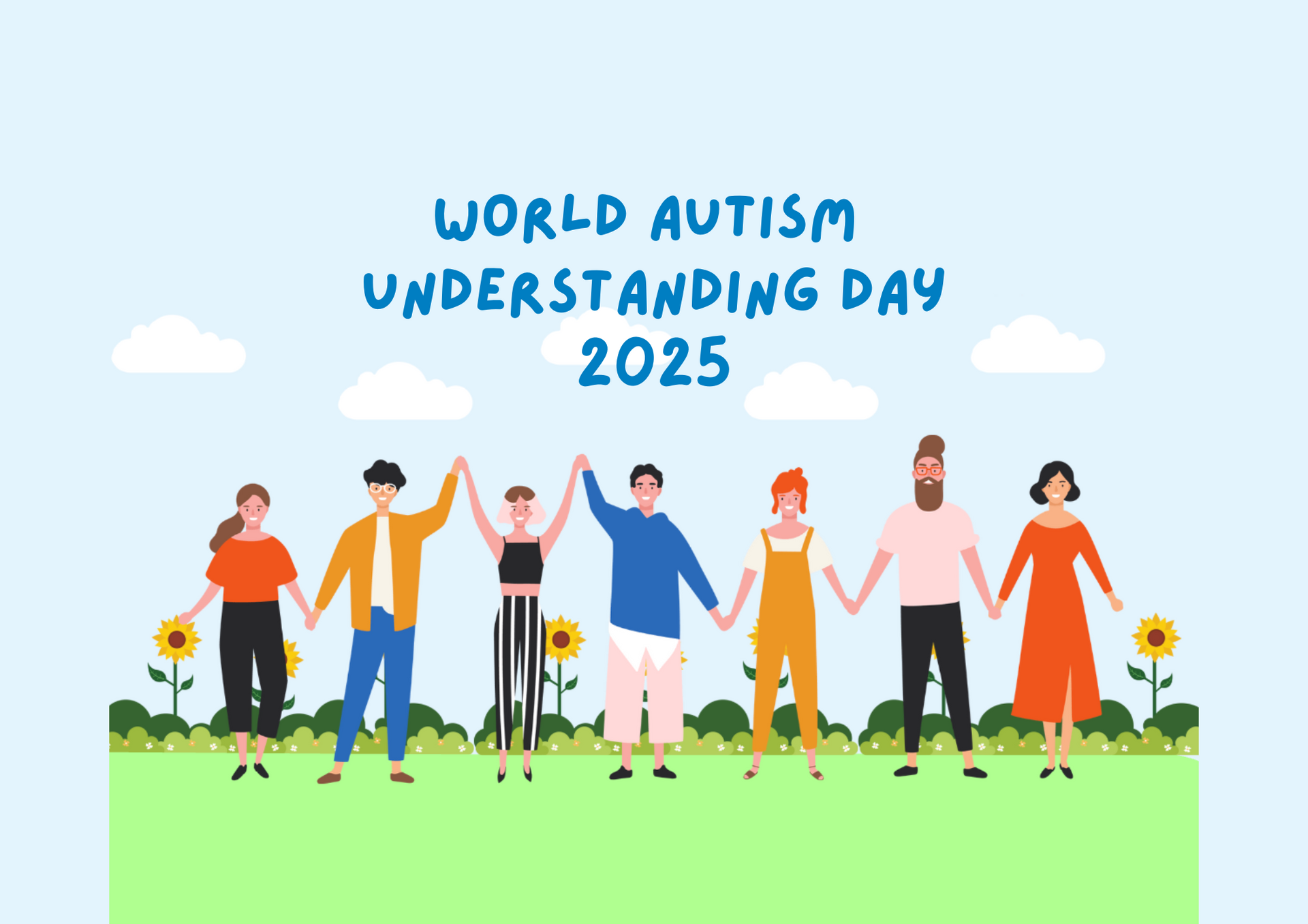Get in touch with us: (03) 8825 3500 / 1300 643 287
5 Mental Health Benefits of Strong Friendships
July 23, 2024
Friendship Day is celebrated around the world with many unique traditions, from making handmade jewellery for friends to sending heartfelt messages on cards. International Friendship Day will take place on July 30th, 2024, offering us an opportunity to express gratitude to our friends and reflect on the positive impact good friends have on our mental health and well-being.
Research shows that genuine adult friendships that offer social support and companionship are a strong predictor of well-being and can protect against mental health conditions like anxiety and depression. Overall, genuine friendship positively impacts us throughout our lifetime. (Pezirkianidis, C., et al., Frontiers in Psychology, Vol. 14, 2023; Blieszner, R., et al., Innovation in Aging, Vol. 3, No. 1, 2019).
To celebrate the upcoming Friendship Day, let’s explore five more Mental Health benefits of having strong friendships:
Friends act as our support system in challenging times.
Often, when we encounter challenging times, it can be difficult for us to manage our thoughts and feelings. Friends help us stay grounded and navigate our worries by listening to us or helping us approach a situation from different perspectives. Simply having a supportive friend in hard times can help us manage our ups and downs better.
Friends help create a sense of belonging
Having a sense of belonging is fundamental to human beings. Having friends offers a sense of community, and helps us feel confident, cared for and loved. This sense of belonging that friendship brings ultimately helps increase our self-worth.
Friends can help reduce stress.
Good friends can offer different perspectives, helping us navigate our problems through different approaches rather than indulging in negative coping mechanisms. A study shows that talking with a supportive friend reduces blood pressure reactivity compared to a friend with whom one is conflicted. (Holt-Lunstad, J., et al., Annals of Behavioral Medicine, Vol. 33, No. 3, 2007)
Friends help improve self-confidence
In times when we feel low about ourselves due to specific life events, friends can help by providing reassurance and reminding us of times we have overcome hurdles and made it through. Having good friends who bring out the best in us can help boost our self-confidence and persuade us to face challenges.
Good friends encourage good change.
It’s common for humans to stay within their comfort zone. However, change and growth occur when good friends encourage you to step outside of your comfort zone and experience change and growth. In having conversations, sharing perspectives, and trying out different activities, friendships help us learn essential life skills we might not have learned on our own. These life skills, such as adaptability, can help us navigate life situations.
Friendships require genuine effort from everyone involved, and in light of International Friendship Day, here are 5 ways to ensure you’re being a good friend:
Listen attentively
Most of us want someone to hear us out or understand us. Your friends aren’t any different. Be a good friend by being a good listener. Acknowledge their experiences and let them talk without deflecting or invalidating their experience even if you don’t necessarily agree.
Make time to meet up with your friends
Life can get busy and sometimes in the chaos of life, we can forget to make time to meet up with friends. It’s important to keep in touch with friends so none of us feel isolated. You can stay in touch by finding an activity you both like or by stepping out of your comfort zones and taking up a new activity together.
Be trustworthy
Trust is the foundation of most relationships. Friendship requires genuine trust to be able to thrive and create a sense of reliability. To be a good friend, make sure to honour promises and safeguard private information that your friend shares with you.
Show kindness
It’s hard to know what people are going through in their lives. It’s important to be kind to your friends, even if they are not vocal about their struggles. Celebrate their milestones like birthdays or achievements to make them feel special and loved.
Be there in times of need
All of us go through times when we need a shoulder to cry on. Similarly, when your friends go through a difficult period, offer them your support or a listening ear which can help strengthen your bond and make them feel cared for. A friend in need is a friend indeed!
This International Friendship Day, take a moment to celebrate and let your friends know how grateful you are for their positive influence on your mental well-being. A happy, healthy life is largely dependent on having strong friendships that provide emotional support, help relieve stress, and improve general well-being.
By Fairooz Zaima

March 31, 2025
On the 2nd of April, we come together to celebrate World Autism Understanding Day. As many people in our community with Autism, it is important to understand how you can support someone to make them feel comfortable. World Autism Understanding Day is not only about understanding Autism but also taking actions to be a supportive person to those around you. What is Autism? Autism is a lifelong developmental condition that affects how a person thinks, feels, interacts with others, and experiences their environment, according to Autism Spectrum Australia (Aspect). People who have Autism may have different preferences regarding social interactions, a heightened sensory awareness, have different communication preferences compared to neurotypical people, have many strengths, and are honest, loyal, and kind people. This year's World Autism Understanding Day is delivered in partnership with communities to create a supportive and more inclusive society so people with Autism can feel more comfortable navigating the world. By creating more understanding about Autism, we can challenge myths and misconceptions regarding Autism to create meaningful changes so Autistic people can have the same opportunities and support as everyone else. Common Myths and Misconceptions Autism only affects males - Autism can affect any gender. Whilst males are most commonly diagnosed, females are often diagnosed at a later point in life. People with Autism lack empathy – Autistic people do experience all emotions including empathy; however, they may show and regulate empathy differently compared to neurotypical people. Autistic people are anti-social – Just like everyone, Autistic people still desire social connections and want to create meaningful relationships. Whilst sometimes social interactions and situations can be challenging for Autistic people, this does not mean they do not want to socialise and create connections. Ways to support people with Autism It is important to understand that people with Autism may experience the world differently compared to neurotypical people. By showing you care for and are willing to support Autistic people, you can help them to feel more comfortable within society and themselves. Encourage inclusivity in group settings – Make sure to make invites to group activities clear to Autistic people. Take some time to explain to them what is going to happen to make sure they feel comfortable. Do not force any social interactions but instead help them feel at ease within any group setting. Keep things clear and simple – Sometimes people on the Autism spectrum take things to heart or have difficulty picking up on social cues. Keep your communication clear and your language direct, and do not be disheartened if they are repeating things you have said to them, they are just trying to make sure that they understood what you said correctly. Respect personal space – Individuals on the autism spectrum may have different preferences regarding personal space and touch. It is important to communicate and ask people with Autism their preferences and always ask for consent before initiating any physical contact. Make sure to be mindful of any physical boundaries and do not be disheartened if they say no, they’ll appreciate you asking and listening to what their preferences are. Watch out for overwhelming situations – People on the Autism spectrum can get overwhelmed by sights, sounds, and smells, especially within a busy or large place due to their heightened sensory awareness. Be sure to look out for this, and if this happens try to move them to somewhere less overwhelming so they can have some time to process their surroundings. Create a safe space for them where they feel comfortable talking about their desires and needs, so they can be their authentic selves. Adjustments can include dimming lights and reducing background noise, which can help people with Autism to feel safe and secure again. With a better understanding of what Autism is and how to support within your community, you can help to make them feel more comfortable and have the same opportunities as neurotypical people. Importantly, while we continue to celebrate World Autism Understanding Day, make sure to continue to understand and support individuals with autism every day of the year to make a more inclusive and comfortable world. By Holly Johns

March 7, 2025
In a world where life is increasingly becoming more challenging, it is more important now than ever to make sure you are being supportive to your partner. When you are being a supportive partner, you are able to grow, learn and become stronger together. There are many different ways you can show support to your partner, and tailor the support you give them to their needs. Listen to your partner As simple as it seems, listening effectively to the needs and wants of your partner can help you to be supportive of them. You are able to tailor your actions to them, providing a more accurate response to their desires. To show you are listening to them and giving your full attention, make sure to stop any distracting tasks that may interfere with being fully present in the moment. Offer encouraging words Showing support to your partner by encouraging them with words provides a sense of belonging. A simple ‘you have got this’ can make a world of difference, allowing your partner to feel empowered. Encourage new challenges and dreams It is natural as time goes on and you spend more time together, the desires and needs of your partner changes. It is important to acknowledge that this is perfectly fine, and to give your partner plenty of support and advice while they navigate new challenges and dreams in their lives. Spend quality time together Whilst life can get busy, it is always important to ensure you and your partner spend quality time together, away from the stressors of life. Show initiative and be the one to arrange a dinner, movie night, or even a small getaway to show your support and love for one another. Be empathetic Being able to understand your partner's emotions and feelings will help you to be able to support them more beneficially. Let them vent their feelings to you and show empathy to them, so they know you are truly there for them in tough moments. Be willing to communicate Communicating how you feel shows respect and trust for your partner. Communication builds an open and honest relationship, so your partner never has to second-guess themselves. Express gratitude It is important to vocalise what you love and appreciate about your partner. By showing you are grateful for their actions and help, this allows them to feel supported and valued within the relationship. Apologise It is important to acknowledge when you are in the wrong, even though sometimes it may not always be easy to do this. By apologising, it lets your partner know that you are actively reflecting on your actions to becoming a better and more supportive person. It is important to be supportive to your partner to increase overall satisfaction in your relationship. By fostering a supportive environment in your relationship, this helps you and your partner to build trust and respect – two very important aspects in a relationship. Support makes people feel valued and safe, which is desirable for so many of us. Being a supportive partner shows you value your relationship, but most importantly, shows that you care. By Holly Johns
Get support
Information & resources
Get involved

The Mental Health Foundation Australia acknowledges the traditional owners of country throughout Australia and their continuing connection to land, sea and community. We pay our respects to them and their cultures and to their elders both past and present.

© 2025
All Rights Reserved | Mental Health Foundation Australia | Registered PBI with ACNC. Charity ABN 81 006 003 363

